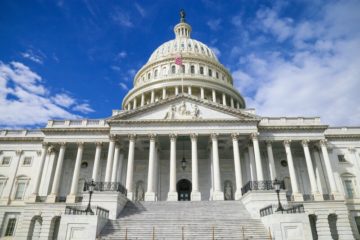June 9, 2014
by Ross Marowits, The Canadian Press
by Ross Marowits, The Canadian Press
MONTREAL—Energy powerhouses like Canada need a proactive approach to protect the environment and not simply wait for a deal to replace the Kyoto Protocol, the head of the International Monetary Fund said June 9.
Christine Lagarde told an international economic conference that whether it’s a carbon tax or a cap-and-trade system, a mechanism is needed to reflect the cost of emissions and encourage less consumption.
She said countries cannot continue ignoring environmental cost factors in the use of fossil fuels, including air pollution and waste water.
“Free markets yes, but (at) the right price,” she told more than 1,200 delegates after receiving an honorary doctorate from the University of Montreal.
Among those attending the opening Economic Forum of the Americas luncheon speech were Quebec Premier Philippe Couillard, former Liberal premier Jean Charest, and former Canadian prime ministers Jean Chretien and Joe Clark.
Lagarde said British Columbia has successfully implemented a carbon tax that both increases revenues and is helpful environmentally. But she said it’s not the only way to proceed.
“I’m sure that there are some good cap-and-trade (systems),” she said, pointing to Quebec’s partnership on the issue with California.
“We cannot just continue ignoring those cost factors.”
Asked if Canada currently takes full account of these “externalities,” she replied with a smile, “I hope it does.”
Prime Minister Stephen Harper said in Ottawa on June 9 that all countries want to take action on climate change, but not at the expense of their own economies.
Couillard later told reporters that most economists agree that some price has to be attached to carbon. And, while political support is lacking in the U.S. to tax carbon, President Barack Obama last week announced regulations to chop carbon emissions from U.S. power plants by 30 per cent by 2030.
“With what I’ve heard from the U.S. and northeast U.S. in recent weeks, I’m quite hopeful we can draw more partners in that carbon exchange (with California),” Couillard said.
Meanwhile, Lagarde applauded Canada’s efforts to unleash its energy sector, supporting efforts to expand infrastructure that will boost exports to Asia and Europe.
Some estimates say full access to Canada’s energy products could raise its GDP by two per cent over a decade.
“Of course that needs to happen with due respect to the environment and it cannot be to the detriment of the environment,” she said.
Lagarde added that the economic benefits of growth in the energy sector must be widely shared by attracting people with skills not only to oil-producing areas but also by increasing jobs among those living in other areas.
Although she says the global recovery is “turning the corner” on the recession, the recovery remains fragile and faces “the twin enemies of complacency and fatigue.”
She expects Canada’s economy will grow by 2.25 per cent this year, helped by improvements in the U.S.
Lagarde said austerity and growth aren’t mutually exclusive and called on political leaders to be “courageous” in making tough decisions, applauding Couillard’s restraint plans in Quebec.


